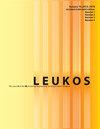改善设计和操作的照明系统控制数据:来自NICU病房的可调照明系统数据
IF 2.6
2区 工程技术
Q2 CONSTRUCTION & BUILDING TECHNOLOGY
引用次数: 2
摘要
LED和控制技术、计算能力和软件的进步为研究人员和设计师提供了新的机会,他们可以共同努力,进一步优化空间,使居住者受益。在为期25周的监测期内,研究人员收集了五个新生儿重症监护病房病房的照明系统控制数据,并对其进行了分析,以更好地了解居住者对全天自动转换的可调照明系统的反应。照明系统很少在安装后根据实际使用情况进行改进。客观数据详细说明了实际居住者如何使用照明系统,强调了安装后优化的机会,并为改进下一个设计提供了见解。随着数据的使用变得越来越普遍,它可以用于设计建议。除了检查数据的时间外,收集数据不需要额外的成本。分析显示了几个明显的改进机会,包括调整夜间默认控制设置,重新标记控制站,以及调整夜间衰减率。病房的居住者是不同区域、调光选项和照明系统提供的手动覆盖的积极用户。本文章由计算机程序翻译,如有差异,请以英文原文为准。
Lighting System Control Data to Improve Design and Operation: Tunable Lighting System Data from NICU Patient Rooms
ABSTRACT The advancement of LED and controls technology, computing capacity, and software provides new opportunities for researchers and designers to work together to further optimize spaces for occupant benefit. Lighting system control data from five neonatal intensive care unit patient rooms was collected over a 25-week monitoring period and analyzed to better understand occupant response to a tunable lighting system with automatic transitions throughout the day. Lighting systems are very rarely refined after installation based on actual use. Objective data detailing how the lighting system is used by the actual occupants highlights the opportunities for optimization after installation and provides insight for improving the next design. As use of the data becomes more commonplace, it can be leveraged for design recommendations. The collection of the data required no additional cost beyond the time for examining the data. The analysis revealed several clear opportunities for improvement, including adjustments to the default control setting at night, re-labeling of the control stations, and adjustments to the nighttime fade rate. The patient room occupants were active users of the different zones, dimming options, and manual overrides made available by the lighting system.
求助全文
通过发布文献求助,成功后即可免费获取论文全文。
去求助
来源期刊

Leukos
工程技术-光学
CiteScore
7.60
自引率
5.60%
发文量
19
审稿时长
>12 weeks
期刊介绍:
The Illuminating Engineering Society of North America and our publisher Taylor & Francis make every effort to ensure the accuracy of all the information (the "Content") contained in our publications. However, The Illuminating Engineering Society of North America and our publisher Taylor & Francis, our agents, and our licensors make no representations or warranties whatsoever as to the accuracy, completeness, or suitability for any purpose of the Content. Any opinions and views expressed in this publication are the opinions and views of the authors, and are not the views of or endorsed by The Illuminating Engineering Society of North America and our publisher Taylor & Francis. The accuracy of the Content should not be relied upon and should be independently verified with primary sources of information. The Illuminating Engineering Society of North America and our publisher Taylor & Francis shall not be liable for any losses, actions, claims, proceedings, demands, costs, expenses, damages, and other liabilities whatsoever or howsoever caused arising directly or indirectly in connection with, in relation to, or arising out of the use of the Content. Terms & Conditions of access and use can be found at http://www.tandfonline.com/page/terms-and-conditions .
 求助内容:
求助内容: 应助结果提醒方式:
应助结果提醒方式:


